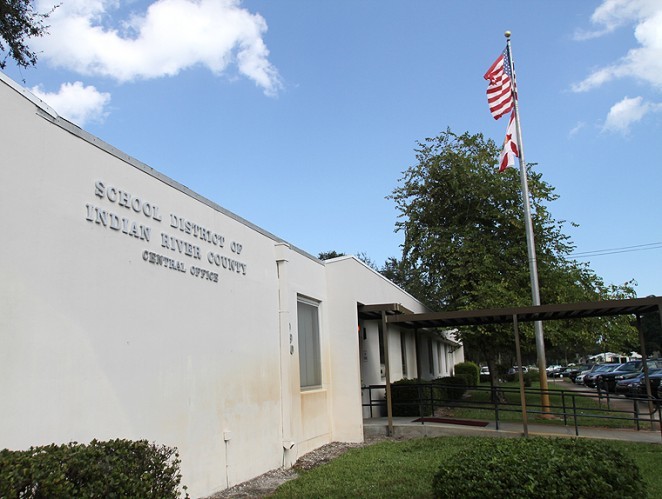
INDIAN RIVER COUNTY — From the onset when early vote totals and absentee ballots were counted, it was clear Indian River County voters are willing to dig deeper into their pockets to support public education.
The ballot measure won by 31 percent – or more than 8,300 votes.
“The people of Indian River County have been very generous to the school district,” said School Board member Karen Disney-Brombach.
“We see this as a victory for the students,” she said, explaining that the referendum is about more about books than buildings.
It is expected to raise $32.7 million in property taxes starting next July when two previous passed school district referendums are set to expire.
Early on, school district officials tried to downplay the referendum saying that they are not seeking a tax increase. Instead, they called it a tax millage continuation.
Mark Mucher, a board member with the Indian River County Taxpayer Association, said Tuesday he regretted not getting out the troops to hold signs urging voters to vote “no” on the referendum.
“Oh my God,” he said when told of the early returns in which 65 percent of the 16,000 votes counted at the time favored the tax increase. “I wanted to have signs printed but I couldn’t get it done. Oh well, hold your wallet.”
School district officials have long argued that more money is needed because of the recession’s devastating impact on property taxes and ultimately the district’s budget.
Part of the funds raised by the millage increase would continue to pay the salaries of 31 teachers whose jobs were secured by a 2010 referendum as well as update the district’s computers and textbooks.
Leading up to Tuesday’s vote, a series of fliers were sent to homeowners in the county touting the merits of the referendum, robocalls from Superintendent Fran Adams reminding parents that school starts next week but also reminding them to vote on the millage referendum.
“If you are interested in further information regarding this referendum, please go to the school district webpage at IndianRiverSchools.org. Thank you for your time.”
Adams’ 35-second robocall sent out to some 18,000 households is believed to be the first time in the five years that the school district has had such a system in place that a superintendent personally recorded a welcome back call.
Florida statute prohibits the school district from campaigning for a “yes” vote. The Florida Department of State Election’s Division said Adams’ robocall did not specifically violate any laws.
“Since the message does not expressly advocate, it’s not a ‘political advertisement’ or ‘independent expenditure,’” said state elections spokesman Chris Cates.
Still, the call raised the hackles local tea party.
“Fran Adams has the same rights to be involved in elections as every other American,” said Toby Hill in a released statement on behalf of the group which he leads. “She can use her own money, time, and resources to support candidates and issues just like the rest of us. What she does not have the right to do is use taxpayer resources to influence an election; and let’s be honest about the robocalls, that is exactly what she did. It may have been deemed legal, but it is highly inappropriate as it uses resources paid for by all taxpayers to support an issue that surely some taxpayers will oppose.”
More recently, advertisements with Adams’ signature on the bottom have been taken out in the area’s daily paper. They were called a Report to the Community and broke down how the money was used from the last referendum in 2010 when more than 60 percent of voters in Indian River County agreed to pay more taxes for the school district.
“On behalf of the School Board of Indian River County, we want to express our heartfelt thanks to the community for its continued support and investment in the education of the children of Indian River County. We especially appreciate this contribution in light of the tough economic times we are all faced with and hope that we can continue to work together for the betterment of our children as we prepare them for jobs tomorrow,” the advertisement read.
Staff Writer Lisa Zahner contributed.



